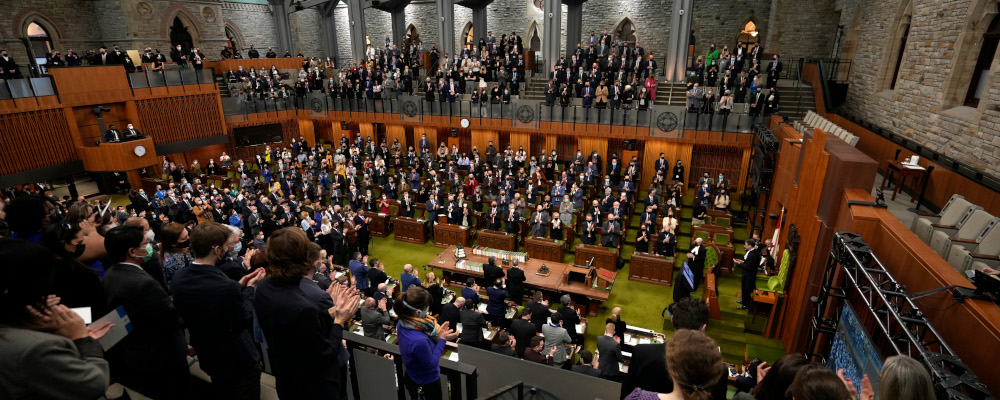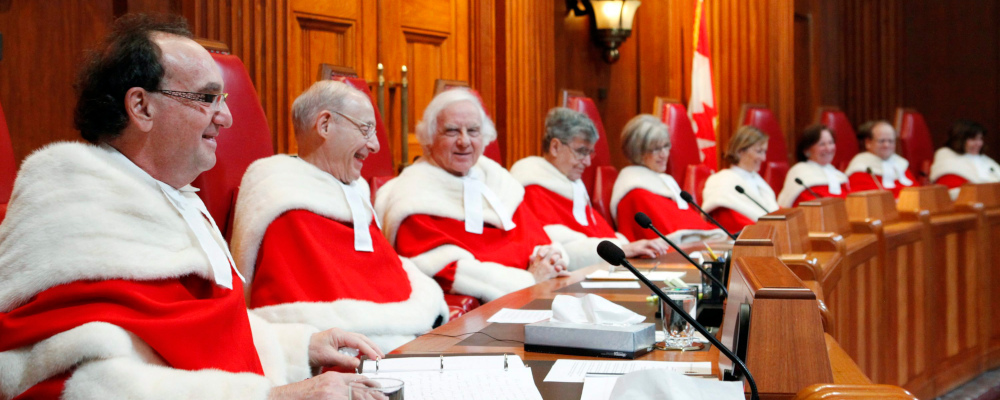The Conservative leadership race is still in its early days. Battle lines are being drawn. Forces are being marshalled. General themes are being developed. Dinnertime robocalls have started. (Lucky me.) And we’ve heard some early gunfire. All standard stuff. But the race needs more than just the same old debates between the same old wings of the party. And so far, the race is quickly becoming nothing but a party referendum on the carbon tax.
Those debates are both needed and important but it’s time for some bold new ideas to bring to Canada. Here’s one that’s overdue for serious debate. Reduce the number of MPs.
You read that right. Yes, it’s coming from someone who wanted to be an MP. Does Canada really need 338 MPs?“Each member of Parliament is elected to represent a constituency in the House. There are currently 338 members in office in the 44th Parliament.” https://www.ourcommons.ca/members/en And that number is set to go to 342.“Put forward in October 2021 as the years-long process kicked off, the independent elections agency calculated that to account for Canada’s population changes, the House of Commons’ seat count would in the coming years be increasing from 338 to 342. To adjust for this, new ridings will be added, requiring the redrawing of current electoral district boundaries.” https://www.ctvnews.ca/politics/feds-look-to-amend-constitution-act-to-impose-new-minimum-seat-count-for-each-province-1.5833425 That’s one MP for every 112,000 of us. The U.S. has one Congressional representative for every 760,000 people thereabouts. We have so many MPs now that they barely fit into the House of Commons.
Raising this may get me into trouble with my political friends but it needs to be said. Let’s have a serious debate about whether Canada needs all these MPs. Don’t get me wrong. I’m not knocking the MPs themselves. They’re hardworking folks. I’m pro-politician. I tried hard to become one. Yet in the grand scheme of things, does Canada need that many MPs? Can we be just as well governed with fewer? We can.
If Conservatives are sincere about reducing the size of government, then let’s start at the top with the number of politicians.
What’s the connection between the size of our legislature and the quality of a national policy or a decision that’s national in scope? Does Canada today with 38 million people need more MPs formulating defence or economic policy than the Canada of 32 million? Would our Covid response have been worse if we had forty fewer politicians in Ottawa? Was it better because we had forty more?
More MPs means more salaries at $189,000 per head, plus more staffers, other costs, more people to mess around in things, and more projects to justify their existence.Indemnities, Salaries and Allowances The Devil makes work for idle hands. Idle MPs make for bigger government.
Some will argue that more populous ridings will only lead to politically underserviced citizens. Companies regularly downsize their workforces but achieve the same outputs. So why not the House of Commons. Ontario significantly cut its number of legislators in the late nineties. It can be done.
What’s a good number? That would be up for debate. Downsizing the House to 295 or 300 seats from 338 would return it to the size it was between 1988 and 2000, roughly speaking.
Here’s the sticky wicket. If we reduce the number, then it must only happen if we fairly allocate the remaining MPs across the provinces based on their relative populations. There’s not enough space here to describe the formula for allocating MPs to each province. It’s convoluted, outdated, and leads to enormous provincial disparities.
In the 2021 election, I ran in the suburban Toronto riding of Scarborough-Agincourt. Its population is 105,000. The PEI riding of Malpeque has 36,000. According to Elections Canada, Ontario had one MP per 122,000 people on average. PEI had one MP per 41,000. Therefore, Islanders have three times the political power of Ontarians. Put another way, Canadians who live in Malpeque had three votes per person while those in my riding had one. I’ve got nothing against the good people of PEI but that’s manifestly unfair.
The equality of Canadians is violated. People’s voices aren’t heard. Regional grievances are fueled. Politics becomes distorted. Negative outcomes are more likely.
Let’s be honest. A reallocation of MPs based on the principle of political equality will lead to Atlantic Canada, Manitoba, and Saskatchewan having less clout than they have right now. But they won’t be getting any less than anyone else.
This will be a thorny debate, perhaps even an unpleasant one. Let’s not be afraid. Modernizing the formula requires a constitutional amendment.“An amendment that only ‘applies to one or more, but not all, provinces’ requires approval from the Canadian parliament and the governments of any affected provinces. An amendment that affects all provinces, by contrast, requires the approval of at least seven of the provincial governments representing at least 50 per cent of the Canadian population (sometimes called the 7-50 formula). On a handful of really important matters, such as changing the amending formula itself, unanimous provincial consent is necessary. The very high bar for passing substantial amendments is probably the main reason Canada’s Constitution has not been significantly modified since 1982, though there have been a few minor amendments passed, usually only involving one province (see sidebar). These are known as Constitution Amendment Proclamations.” https://thecanadaguide.com/government/the-constitution/
It risks dredging up regional tensions, old grudges, and provincial demands. Managing it to ensure a positive outcome will require leadership, compromise, discipline, and forbearance on the part of our leaders. It also requires hard boundaries to be placed on the scope. Just because we’re debating the number of MPs doesn’t mean we’ll re-open Senate reform or the distinct society clause.
Maybe it’ll be political suicide. Maybe, just maybe, it will succeed and Canada will be better for it.
Canada needs fewer, better politicians. We’re not better governed today because we have forty more MPs than we did twenty-five years ago. The ever-increasing number of MPs is not written in stone. It’s written in our law. We can change it. It’s past time we did so.
Recommended for You

The Weekly Wrap: It’s time to cut through Chesterton’s Fence and implement sweeping reform in Canada

Has the Left lost its masculine energy?

The Week in Polling: Young Canadians delay milestones due to high costs, Liberals lose the youth vote, and most Canadians fear a Trump-Vance White House

Ginny Roth: J.D. Vance, Pierre Poilievre, and how they slice their economic pie








